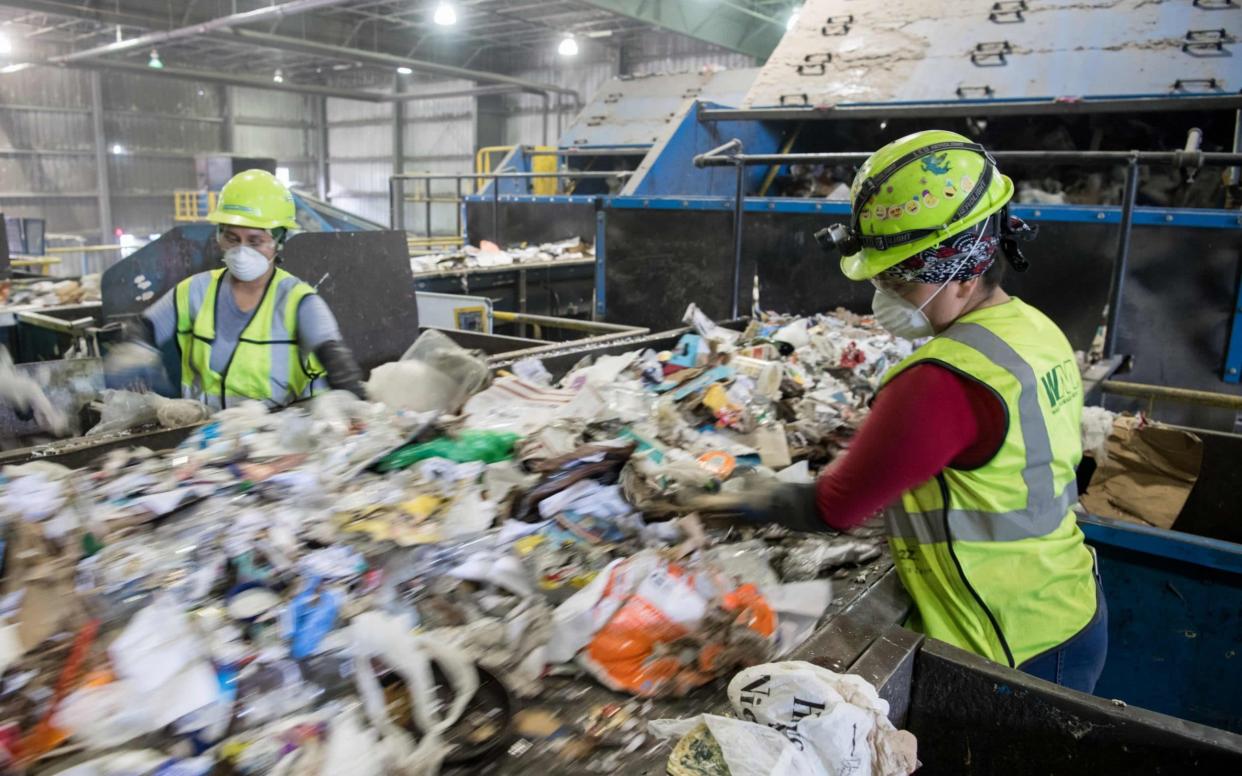Councils will be forced to recycle all household waste within four years to end chaos


Councils will be forced to recycle all household waste within four years to end the current chaotic situation across the country, the government has announced.
Earlier this month The Telegraph revealed that just one in five councils provides a complete recycling service, leaving householders left in a postcode lottery of waste disposal, and confused as to what they should be putting in their bins.
The bewildering system means Britain will not meet targets to recycle 50 per cent of household waste by 2020.
This newspaper launched a ‘Zero Waste’ campaign calling on the government, local councils and private companies to do more to boost the country’s recycling rates and make the process simpler.
Now, following a consultation, the Department for the Environment (Defra) has announced by 2023, all councils will be legally obliged to recycle glass bottles, and jars, paper and card, plastic bottles, pots, subs and trays as well as steel and aluminium cans.

Food waste recycling will also be brought in across the country, and the government is considering funding councils to collect garden waste for free. Many have recently started charging up to £96 a year for the service.
Under new plans producers of packaging will also bear the full net cost of disposing of it, to encourage them to choose recyclable products.
Coun Martin Tett, Environment spokesman for the Local Government Association (LGA), said: “We support moves to a clearly defined core set of recyclable materials, as long it is fully funded, and welcome further work on how funding from packaging producers and retailers will be allocated to councils.
“The onus is now on manufacturers to urgently up their game by using packaging that is fully and easily recyclable, and pay the full cost of recycling packaging.”
Under the new proposals, labels on packaging will also become simpler, so that shoppers can clearly see if a product can be recycled or not.
There is currently no standardised labelling system, with goods stamped with a plethora of baffling symbols.

In a statement, Defra said: “The government aims to make it easier for people to recycle by implementing a consistent and simplified approach across local authorities.
“The government will legislate to introduce a core set of consistent recyclable materials (including food waste) to be collected from all households and businesses, supporting frequent and comprehensive rubbish and recycling collections.
“It will also require manufacturers to put clearer labelling on packaging so consumers know what they can recycle.”
The new measures were set out by Michael Gove, the Environment Secretary, as part of the new Environment Bill which has been updated for the first time in 20 years, and will include new laws to make councils tackle waste effectively.
Other proposals include a deposit return scheme for drinks containers which will be introduced in 2023 to help cut litter and boost recycling.
The details of the scheme for England, Wales and Northern Ireland, which would charge customers a levy on containers such as plastic bottles, that is paid back when they return them for recycling, have yet to be drawn up.
Mr Gove said: “We know we must do all we can to protect our precious natural environment. There is a clear need to act to ensure we do not leave this planet to the next generation more polluted, more dangerous and denuded of its natural riches .
“The measures in our Environment Bill will position the UK as a world leader, ensuring that after EU Exit environmental ambition and accountability are placed more clearly than ever before at the heart of government.”
The new bill will be introduced early in the second session of this Parliament.

 Yahoo News
Yahoo News 
